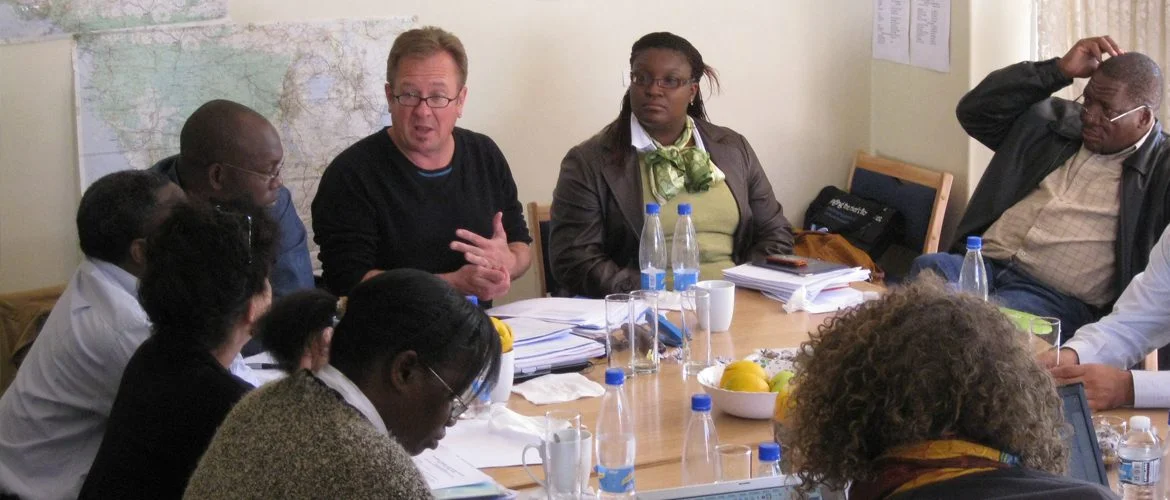Affiliations & partnerships
Oxfam Australia works with hundreds of program partners; small and large organisations that work locally to deliver programs that help to save lives, and tackle poverty and injustice in practical and innovative ways. We also work with our partners and allies to deliver programs at the national and international level. By developing relationships with organisations, coalitions and movements that share our values, we aim to address the root causes of poverty, vulnerability and injustice.
Adopting this approach means that the people and communities we seek to benefit develop their own equitable and long-lasting solutions as well as the confidence and skills to voice and claim their rights.
In designing and delivering our programs, we work to ensure that people with disabilities, who are particularly vulnerable to poverty and other disadvantages, have equal access to all of our programs, so they can meaningfully participate in them and benefit equally from them.
Oxfam International
We are a member of Oxfam International, a global confederation of 22 organisations working together with partners and local communities in more than 70 countries.
Together, we can:
- link up development programs to reach more people, avoid duplication and learn from each other
- campaign internationally with a united global voice on some of the world’s biggest problems
- be the first to respond when an emergency strikes, providing funds, aid workers and relief supplies within hour
Program management
All Oxfam affiliates have agreed to change to the Oxfam confederation’s management structure.
Historically, the Oxfam affiliates that make up Oxfam International have worked closely together on global campaigns such as Even it Up and on major humanitarian emergencies such as the Nepal earthquake.
However, each affiliate has largely continued to run its own development programs — a situation that means that multiple Oxfam affiliates work side-by-side in some countries.
We are now bringing these programs together so that in each country, all Oxfam development programs are managed by a single Oxfam affiliate. Other affiliates will still be able to contribute to program work in a country they don’t manage, through funding and implementing projects.
Having a single strategy and leadership will mean we can be better coordinated and more effective at combining our resources, skills and knowledge to do even more to combat poverty around the world and ensure programs have the greatest possible impact.
Program partners
Working with others is central to our mandate. While we can achieve much as Oxfam Australia, we can achieve more working in partnership with others. The programs we implement together can encourage the real participation of people living in poverty, be more sustainable, have greater impact, and ultimately, help people to help themselves.
We seek partnerships based on:
- shared vision, values and objectives
- clearly defined roles and responsibilities
- mutual accountability, respect and trust
We form partnerships with a diverse range of organisations including community-based organisations, peoples’ movements, trade unions, non-government organisations, other Oxfam affiliates, academic institutions, government agencies and private companies. They may be local, national, regional or global in scope.
Six principles of partnership
Among the many partners and allies with which Oxfam Australia has relationships, local community organisations have the legitimacy and position to foster lasting changes in their societies.
We strive to build strong local organisations and a sustainable civil society. We make every effort to live up to our view that effective partnering is a fundamental strategy through which Oxfam Australia seeks to become redundant. The following six principles govern our partnerships:
- Shared vision and values: We partner with organisations that share a belief that people living in poverty should enjoy their fundamental human rights, that they are agents of their own development, and have a commitment to gender equality and respect for diverse identities
- Complementarily of purpose and value-added: We value and acknowledge the diverse skills, knowledge and resources that each of our partners brings, as well as their understanding of the local context, and local networks within their communities
- Autonomy and independence: We do our best to make sure our partnerships are equal by not imposing our views and by building mutual respect for different viewpoints, values and beliefs within the partnership
- Transparency and mutual accountability: Both we and our partners have multiple accountabilities to a variety of stakeholders, including supporters and donors and, most importantly, to women and men living in poverty
- Clarity on roles and responsibilities: Partnerships are built on clear and robust partnership agreements. For funding partnerships, all the elements of the partnering process and decision-making are discussed and agreed by partners before a contract is signed
- Commitment to joint learning: We promote continuous and systematic learning. In partnerships, this requires upfront agreement on what we both can learn from our joint work, and from each other.
